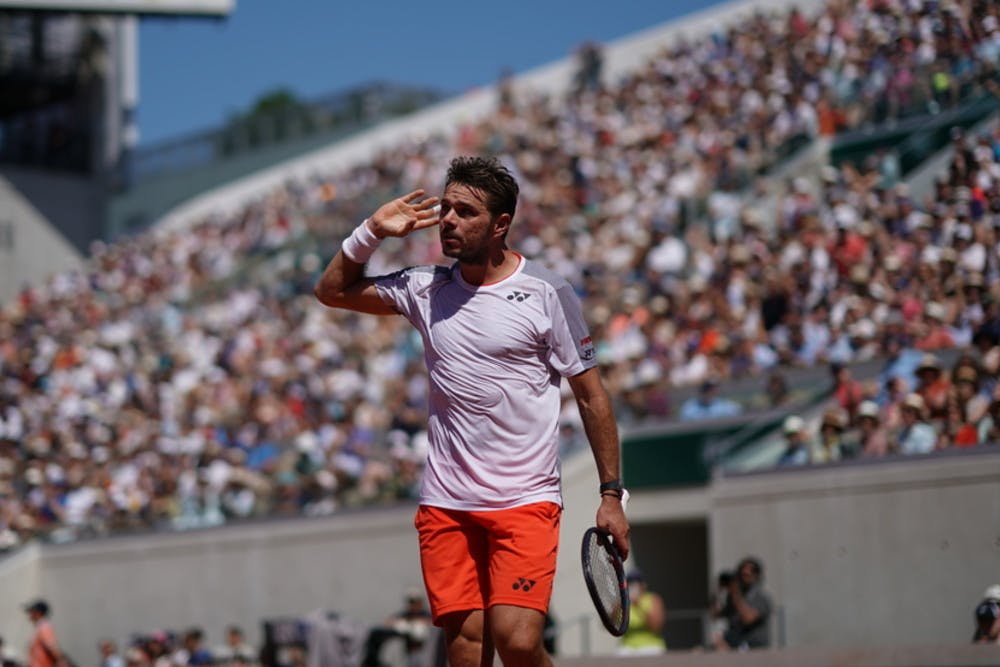Long-time rivalry renewed
The head-to-head ledger between the Swiss Olympic gold medal-winning pair reads a lopsided 22-3 in Federer’s favour but all Wawrinka’s victories have come on clay. Their most recent clash on the terre battue came at the same stage at Roland-Garros in 2015, when Wawrinka went all the way to collect the second of his three slam trophies.
“I have some bad memories against Stan in 2015. He beat me in three sets with his terrible shorts,” Federer joked. There was no one happier though to see his good friend back to his brilliant best after serious knee injuries.
“On clay it's been definitely more dangerous than on any other surface for me against him,” Federer said. “I think for a while there he wasn't sure if he was ever going to come back again. It's nice to see him pain-free and playing well.
"I hope he's not at the level of '15, but we'll find out because there he was crushing the ball. It was unbelievable.”
Youth no advantage
Tsitsipas would have become the youngest man since a 20-year-old Juan Martin del Potro to reach the Roland-Garros quarter-finals. Instead it’s Wawrinka, 34, against the 37-year-old Federer, the oldest Roland-Garros quarter-finalist since 1971. Federer’s older, sure. “But he’s quite better than me, also, so never forget that,” Wawrinka said. And what about this so-called second life Federer said his compatriot was enjoying since returning from knee surgeries? “A second life in what? I'm 34 years old. It's still my first life,” Wawrinka grinned. “I'm happy with it.”
French-speaking former champs adored
Hailing from the Swiss-French city of Lausanne, Wawrinka has long wooed Parisian crowds with his on-court artistry and with French as his mother tongue. The Swiss whipped the atmosphere into fever pitch on Lenglen at any available opportunity, blowing kisses and raising thumbs-ups to calls of “Je t’aime, Stan”, and raising his hand to his ear when working the crowd to his advantage before pivotal points.
It was a gauntlet he’d happily laid for his younger opponent. “I think I’ve never experienced that kind of atmosphere here in Paris on Lenglen,” Wawrinka said. “Always had a lot of support, but I think today was really special, and the match was amazing, five hours' match, five sets. The crowd stayed all the match.
“This kind of atmosphere, for sure … I enjoy a lot. That's the reason why I still play tennis, and that's the reason why I'm practicing every day to try to win big matches like that.”
 ROLAND-GARROS
18 May - 7 June 2026
ROLAND-GARROS
18 May - 7 June 2026


